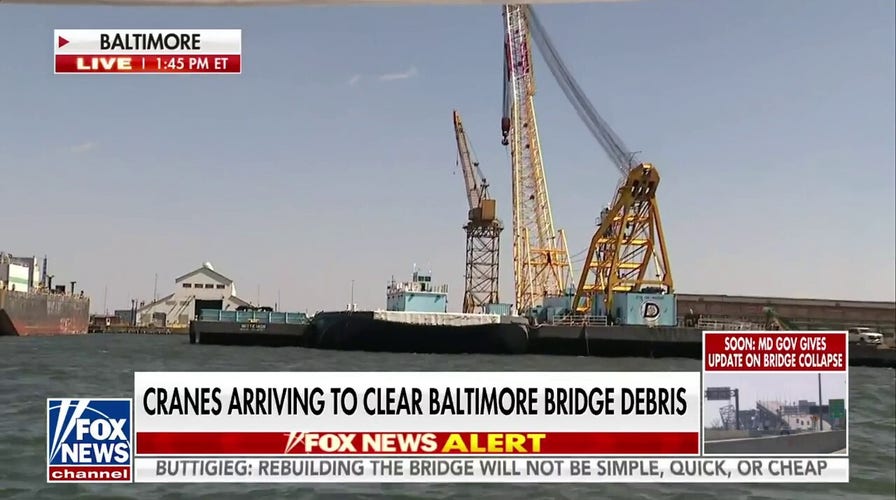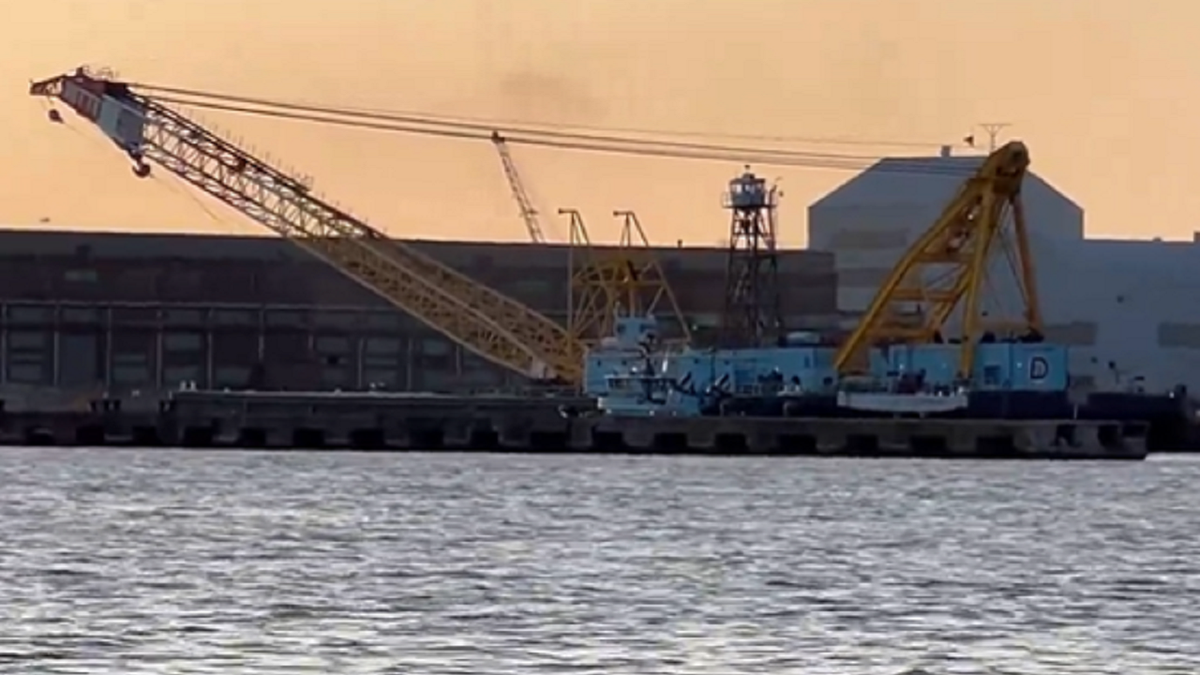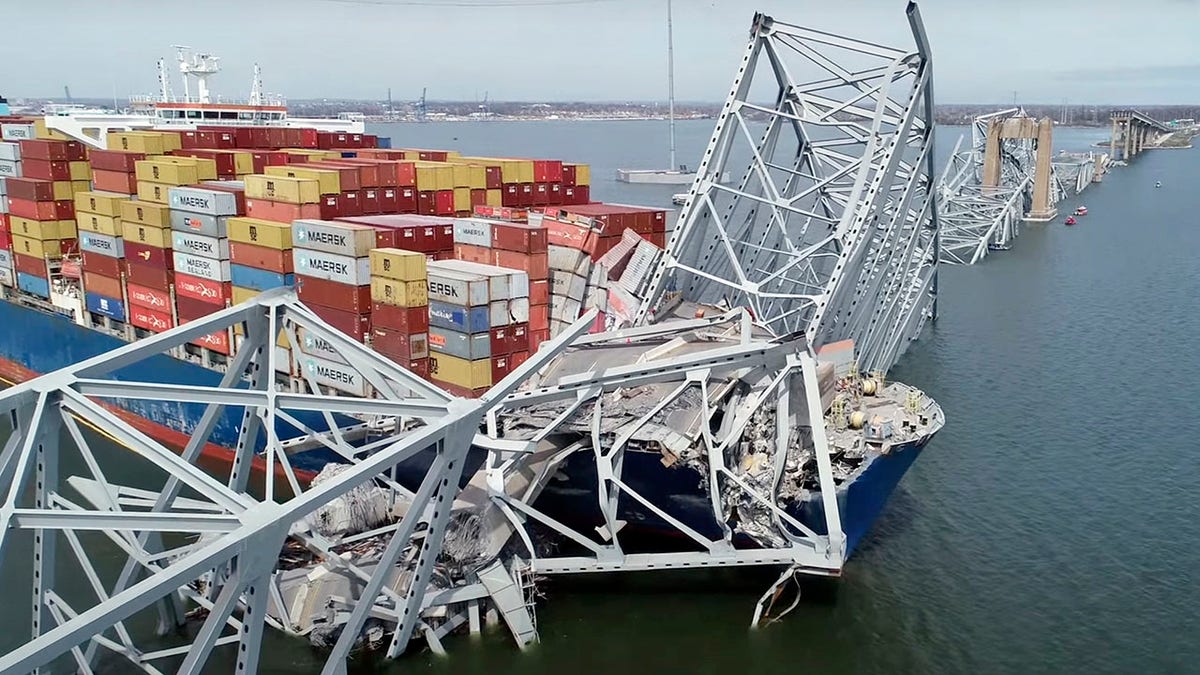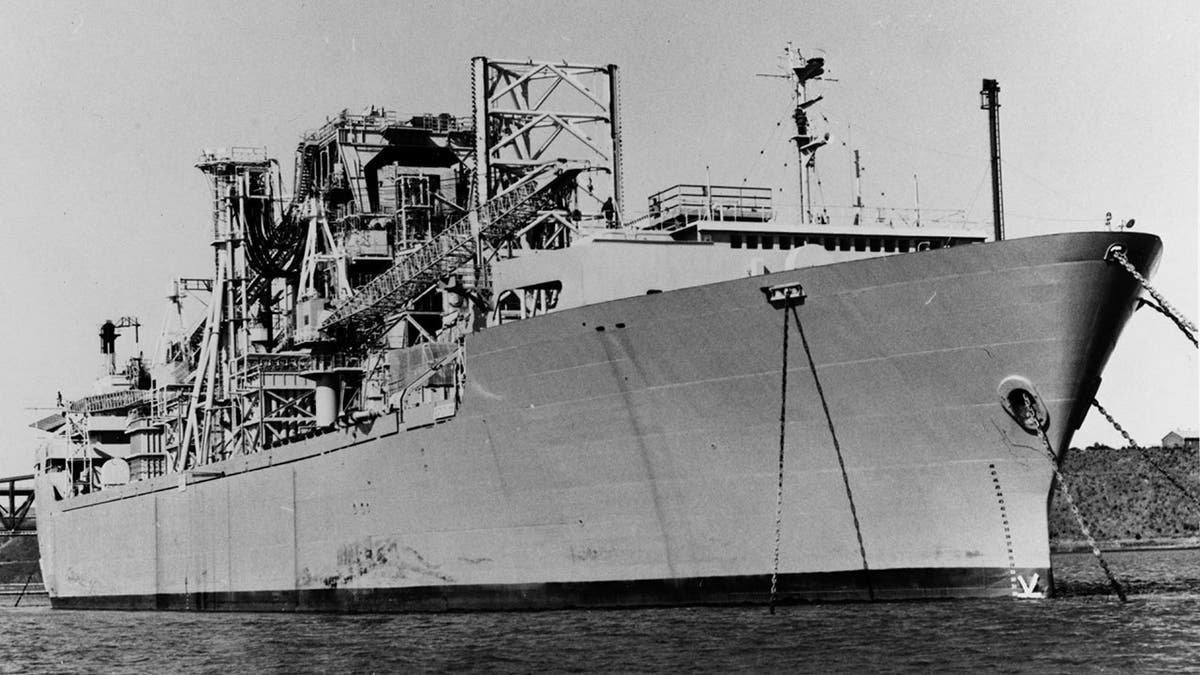close 
Cargo ship that collided with Baltimore bridge had another accident in 2016
Fox News national correspondent Griff Jenkins reports on the cleanup process for the Baltimore bridge debris and the cargo ship Dali’s troubled history.
Join Fox News for access to this content Plus special access to select articles and other premium content with your account – free of charge. Please enter a valid email address. By entering your email and pushing continue, you are agreeing to Fox News’ Terms of Use and Privacy Policy, which includes our Notice of Financial Incentive. To access the content, check your email and follow the instructions provided. Having trouble? Click here.
A powerful floating crane that played a role in what the CIA says was one of the “greatest intelligence coups of the Cold War” has arrived at the Francis Scott Key Bridge collapse site in Baltimore to start removing debris.
The Chesapeake 1000, which Unified Command tells Fox News Digital can “carry up to 1,000 tons,” arrived late last night at the wreckage site in the Patapsco River, where the remains of four construction workers are still missing following Tuesday’s collapse.
The crane originally was built as the Sun 800 in 1972 to help construct the Hughes Glomar Explorer, a deep-sea vessel used by the CIA in a secret mission called “Project AZORIAN” to recover a Soviet nuclear submarine that sank in the Pacific Ocean during the Cold War, according to the Engineering News-Record.
It later had its capacity increased from 800 to 1,000 tons and was bought by New Jersey-based Donjon Marine Co. Inc. in 1993, which confirmed the details of the report to Fox News Digital on Friday.
US ARMY VETERAN SPECULATES ON WHAT WENT WRONG BEFORE BALTIMORE BRIDGE COLLAPSE

The Chesapeake 1000 floating crane in Baltimore, Maryland, on Friday, March 29. (Griff Jenkins/Fox News)
Donjon Marine Co. Inc. says on its website that the floating crane barge is nearly 200 feet long and has a boom of 231 feet. Maryland Gov. Wes Moore described it Thursday as the “the largest crane in the Eastern seaboard.”
The cargo ship Dali struck a pillar of the bridge on Tuesday, causing it to collapse and killing six.
On Thursday, the Key Bridge Response 2024 Unified Command – which is made up of the Coast Guard, Army Corps of Engineers, Maryland State Police and other agencies – said “on-scene crews continue to assess and monitor for spilled oils and hazardous substances to prevent further discharge or release into the marine environment.”
“First responders have observed a sheen around the vessel. There are 56 total containers loaded on the vessel that contained hazardous materials,” it added in a statement. “Fourteen were impacted. The 14 that were impacted were assessed by an industrial hygienist for potential hazards.”
FUNDING BILL TO REPLACE BALTIMORE KEY BRIDGE COULD TAKE SHAPE IN ‘MATTER OF WEEKS,’ TOP HOUSE REPUBLICAN SAYS

In this image taken from video released by the National Transportation and Safety Board, the cargo ship Dali is stuck under part of the structure of the Francis Scott Key Bridge after the ship hit the bridge, on Tuesday, March 26, 2024. (NTSB/AP)
The CIA says Project AZORIAN came to be after K-129, a “Soviet Golf II-class submarine carrying three SS-N-4 nuclear-armed ballistic missiles,” sank in 1968 about 1,800 miles northwest of Hawaii.
The ship used in that mission, the Hughes Glomar Explorer, was “ostensibly a commercial deep-sea mining vessel ostensibly built and owned by billionaire Howard Hughes, who provided the plausible cover story that his ship was conducting marine research at extreme ocean depths and mining manganese nodules lying on the sea bottom,” according to the CIA.
The Explorer eventually pulled up a part of the submarine in 1974 that included the bodies of six Soviets, but another part broke off about halfway to the surface, the CIA says. A second mission to recover that lost portion was scuttled after details of the program were exposed by the media a year later.

The Glomar Explorer ship is seen anchored in the U.S. Navy’s National Defense Reserve Fleet in Suisan Bay, California in this U.S. Navy handout file photo taken on May 15, 1977. The ship was built by the CIA for a secret Cold War mission in 1974 to raise a sunken Soviet sub. Christened the Hughes Glomar Explorer, after billionaire Howard Hughes was brought in on the CIA’s deception, the 619-foot vessel eventually became part of the fleet of ships used by Swiss company Transocean to drill for oil. (Reuters/US Navy/Archives Branch, Naval History and Heritage Command, Washington)
CLICK HERE TO GET THE FOX NEWS APP
“Although Project AZORIAN failed to meet its full intelligence objectives, CIA considered the operation to be one of the greatest intelligence coups of the Cold War,” it said.
Greg Norman is a reporter at Fox News Digital.
